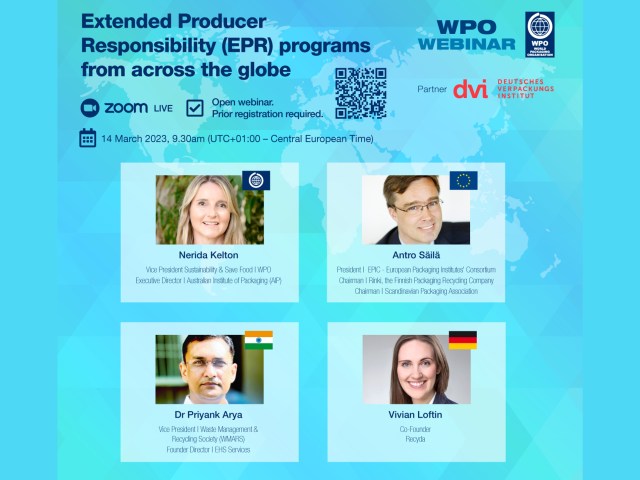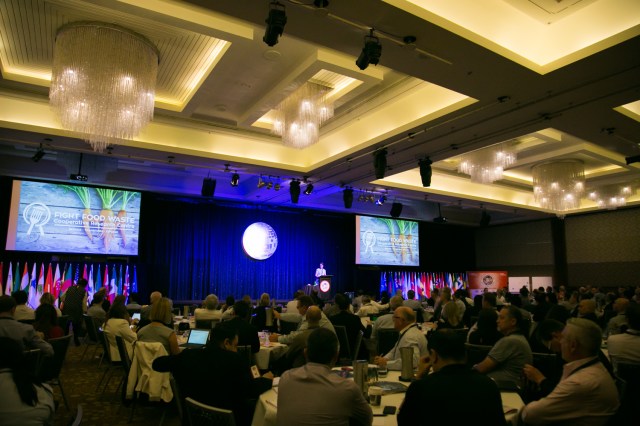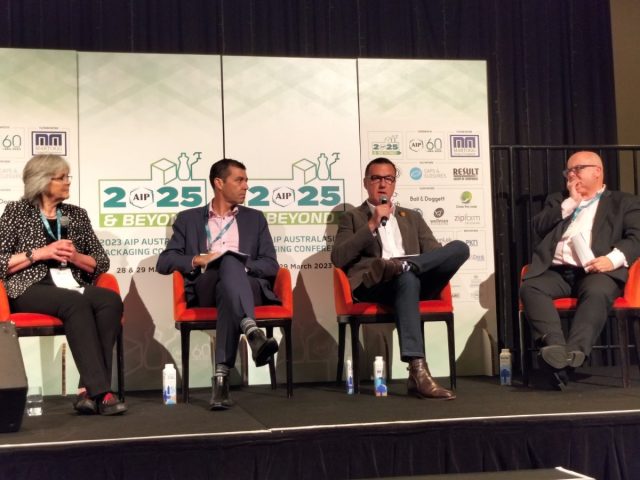
By Conal O’Neill
The 2023 Australian Institute of Packaging (AIP) Australasian Packaging Conference was recently held at the Crown Promenade in Melbourne under the theme of “2025 and beyond.”
The first keynote session featured presentations from AIP executive director and World Packaging Organisation vice-president of sustainability and save food Nerida Kelton, World Packaging Organisation president Professor Pierre Pienaar and Procter & Gamble technical director Gian De Belder.
Kelton highlighted the importance of viewing sustainability in the packaging industry through the lens of food waste, saying that the two issues were inextricably linked.
Addressing the challenges of sustainability “with a scientific balanced argument about packaging waste, sustainable packaging and food waste” is key to understanding and addressing environmental issues in the packaging and food and beverage sectors, Kelton noted.
Professor Pienaar opened the conference with an address focussed on the potential of extended producer responsibility (EPR), saying that it is “the way of the future” and that “a producer (taking) responsibility for that which they are producing” is “the solution to our issues”.
While commenting on food waste issues, Pienaar also noted that $14 billion worth of pharmaceuticals are destroyed globally each year because of packaging and supply chain issues.
De Belder gave a pre-recorded address discussing his work in research and development of intelligent packaging systems for the Holy Grail 2.0 initiative. Using digital watermarks to enable efficient sorting of recycling material, Holy Grail 2.0 aims to eliminate plastic waste.
“A transformational change of the waste industry (through digitalisation) is truly required,” De Belder said, adding that the “relatively high cost” of introducing digital watermarks could be offset by introducing them at the same time as other artwork change initiatives.


